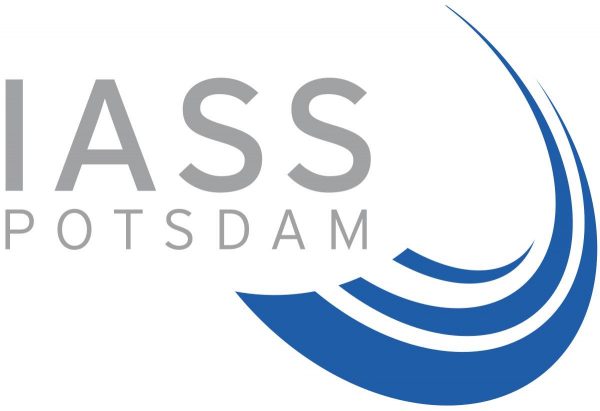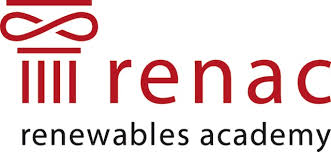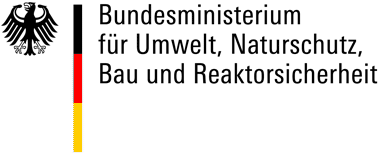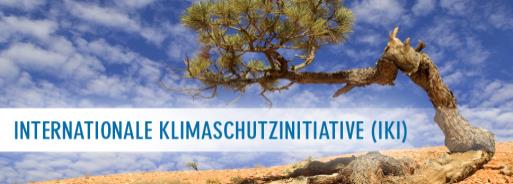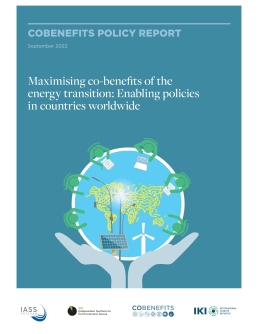Mobilizing the Co-Benefits of Climate Change Mitigation through Capacity Building among Public Policy Institutions (COBENEFITS)
With the ratification of the Paris climate agreement from 2015, member states of the UNFCCC made the committment to implement national plans for climate change mitigation and adaptation (NDCs). The promotion of renewable energies is an important part of these plans, but is also essential to meet development targets.
From a „yes“ to wind- and solar power does not only profit the climate: The priorization of renewables goes along with social and economic opportunities, the so-called co-benefits.
These opportunities include public health, the protection of natural resources, improved energy safety, accelerating access to electricity, improved investment opportunities and local value-creation.
Climate and energy policies in countries with a fastly growing energy demand, like India, South Africa, Vietnam and Turkey are currently at the crossroads. Their decisions on energy investments can create path dependencies for decades to come.
In national discussions about future energy policies, co-benefits are important arguments which can support the decision for more renewable energies. They can contribute positively to enter a sustainable and climate-friendly development path.
Here it is especially important that co-benefits do not stay abstract and un-specific, but are tailored to meet the political and social needs in the individual countries.
The COBENEFITS project starts here by offering ministries, public authorities and non-governmental organizations in its project countries a „tailor-made“ consulting to this topic.
In collaboration with national knowledge partners in India, South Africa, Vietnam and Turkey, the project elaborates country specific co-benefits of climate policies, with emphasis on the opportunities presented by renewable power generation.
It enables international mutual learning and capacity building among policy makers, knowledge partners and multipliers on seizing the social and economic co-benefits of climate change mitigation, through
- Country-specific assessment reports of social and economic co-benefits of renewable power generation
- Training materials, online courses and face-to-face trainings on seizing co-benefits of renewable power generation
- Mobilising the co-benefits of Climate Change Mitigation through capacity building among public policy institutions
- Political dialogue sessions on enabling political environments and overcoming barriers to seize the co-benefits
COBENEFITS connects the social and economic opportunities of renewable energies to climate change mitigation strategies. It thereby builds strong alliances and lowers political barriers to revise and effectively implement the Nationally Determined Contributions to the 2015 Paris Agreement on Climate Change.
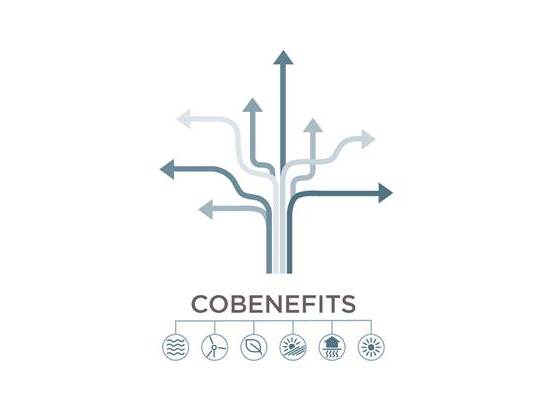
Term
03/2017-02/2020
Corporation partners
Institute for Advanced Sustainability Studies e. V. (IASS)
International Energy Transition (IET)
Auftraggeber
Bundesministerium für Umwelt, Naturschutz, Bau und Reaktorsicherheit (BMUB) im Rahmen der Internationalen Klimaschutzinitiative (IKI)
Contact
Franziska Sperfeld (e-mail: franziska.sperfeld@ufu.de)
UfU and IASS publish Enabling Policies Report
The COBENEFITS Enabling Policies Report is the official final report of the project. It provides an overview of policy measures that have a high potential to fairly exploit the co-benefits of renewable energy in the power sector. The report summarises findings and recommendations from five COBENEFITS project years and more than 15 studies from more than 7 countries. As such, it is a practical tool for policy makers, researchers and policy advisors to think climate change mitigation and socio-economic development together in practice.
The whole Report: https://www.ufu.de/en/publication-enabling-policies-report/
Veröffentlichungen in dem Projekt:
- UfU/IASS 2022
Maximising co-benefits of the energy transition: Enabling policies in countries worldwide
COBENEFITS Impulse
Authors: Sarah Kovac, Franziska Sperfeld — UfU
Editors: Laura Nagel, Sebastian Helgenberger – IASS Potsdam
Potsdam, September, www.cobenefits.info
Download PDF: Enabling Policies worldwide (PDF)
- UfU/IASS 2022
Co-Benefits Knowledge Commons: Renewable energy for air quality and people’s health
COBENEFITS & Climate and Clean Air Coalition
Editors: Franziska Sperfeld, Sarah Kovac, Sophie Dolinga, Laura Nagel, Héctor Rodríguez
www.cobenefits.info
Download PDF: Renewable energy for air quality and people’s health (PDF)
- IASS/IPC/UfU/IET 2022
Increasing industrial competitiveness and hedging against fossil price volatility with renewables in Turkey. Assessing the co-benefits of decarbonising the power sector
IET, IPC, UfU, and IASSCOBENEFITS Executive Report: Executive Summary Update
Editors: David Jacobs, Dursun Ba, Ümit Şahin, Franziska Sperfeld, Laura Nagel, Sebastian Helgenberger
Potsdam/Istanbul, www.cobenefits.info
Download PDF: Industrial competitiveness through renewables in Turkey (PDF)
- UfU/IASS 2021
Co-Benefits Knowledge Commons: Renewable energy, employment opportunities and skill requirements
COBENEFITS & Sustainable Energy Jobs Working Group under IRENA’s Coalition for Action
Editors: Franziska Sperfeld, Sarah Kovac, Sophie Dolinga, Laura Nagel, Héctor Rodríguez
www.cobenefits.info
Download PDF: Renewable energy, employment opportunities and skill requirements (PDF)
- IET/IASS/EPRA/METU/OZU/UfU/IPC 2021
Making the Paris Agreement a success for the planet and people of Turkey: COP26 Briefing: Reducing electricity prices and increasing economic competitiveness with renewable energy
Technical Implementation: : Osman Bülent Tör, Saeed Teimourzadeh, Ebru Voyvoda, Göktürk Poyrazoğlu – EPRA/METU/OZU
Editors: David Jacobs, Laura Nagel, Sebastian Helgenberger, Franziska Sperfeld, Dursun Bas, Ümit Şahin – IET/IASS/UfU/IPC
www.cobenefits.info
Download PDF: Reducing electricity prices & increasing economic competitiveness – Turkey (PDF)
- IASS IPC/UfU 2020
Making the Paris Agreement a success for the planet and the people of Turkey. Unlocking the co-benefits of decarbonising South Turkey power sector.
COBENEFITS Policy Report
Editors: Pınar Ertör Akyazı, Franziska Sperfeld, Sebastian Helgenberger, Ümit Şahin, Laura Nagel
Potsdam/Istanbul, www.cobenefits.info
Download PDF: Unlocking Cobenefits in South Turkey – english version (PDF)
Download PDF: Unlocking Cobenefits in South Turkey – turkisch version (PDF)
- IASS/UfU/IET/CSIR 2020
Making the Paris Agreement a success for the planet and the people of South Africa. Unlocking the co-benefits of decarbonising South Africa’s power sector
COBENEFITS Policy Report
Editors: Franziska Sperfeld, David Jacobs, Sebastian Helgenberger, Laura Nagel, Ruan Fourie
Potsdam/Pretoria, www.cobenefits.info
Download PDF: Unlocking cobenefits in South Africa (PDF)
- IASS/UfU/Green ID 2020
Making the Paris Agreement a success for the planet and the people of Vietnam. Unlocking the co-benefits of decarbonising Vietnam’s power sector
COBENEFITS Policy Report – English/Vietnamese.
Editors: Franziska Sperfeld, Sarah Kovac, Fabian Stolpe, Sebastian Helgenberger, Minh Anh Nguyen, Laura Nagel
Potsdam/Hanoi, www.cobenefits.info
Download PDF: Unlocking cobenefits in Vietnam – english Version(PDF)
Download PDF: Mở ra các đồng lợi ích của hoạt động giảm phát thải các-bon trong ngành điện của Việt Nam (PDF)
- IASS/UfU/TERI 2020
Making the Paris Agreement a success for the planet and the people of India. Unlocking the co-benefits of decarbonising India’s power sector
COBENEFITS Policy Report
Editors: Sebastian Helgenberger, Ankush Kumar, Franziska Sperfeld, Sarah Kovac, Laura Nagel, and Neha Pahuja
Potsdam/New Delhi, www.cobenefits.info
Download PDF: Unlocking cobenefits in India (PDF)
- IASS/UfU 2019
Co-Benefits for Just Energy Futures: Knowledge Commons 2019 Edition
Editors: Sarah Kovac, Franziska Sperfeld and Lisa Habigt
Potsdam, www.cobenefits.info
Download PDF: Co-Benefits for just energy futures (PDF)
- IASS/Green ID/UfU 2019
Electricity access and local value creation for the un-electrified population in Vietnam. Assessing the co-benefits of decarbonising the power sector, English/Vietnamese
Editors:Ayodeji Okunlola, Laura Nagel, Nguyen Thi Mai Dung, Sebastian Helgenberger, Nguy Thi Khanh, Nguyen Thi Mai Dung and Sarah Kovac
Potsdam/Hanoi, www.cobenefits.info
Download PDF: Energy access in Vietnam – english (PDF)
Download PDF: Đánh giá đồng lợi ích từ giảm phát thải các-bon trong ngành điện (PDF)
- IASS/Green ID/UfU 2019
Future skills and job creation through renewable energy in Vietnam. Assessing the co-benefits of decarbonising the power sector, English/Vietnamese
Editors:Ayodeji Okunlola, Laura Nagel, Sebastian Helgenberger, Nguy Thi Khanh, Nguyen Thi Mai Dung and Sarah Kovac
Potsdam/Hanoi, www.cobenefits.info
Download PDF: Job creation in Vietnam – english(PDF)



